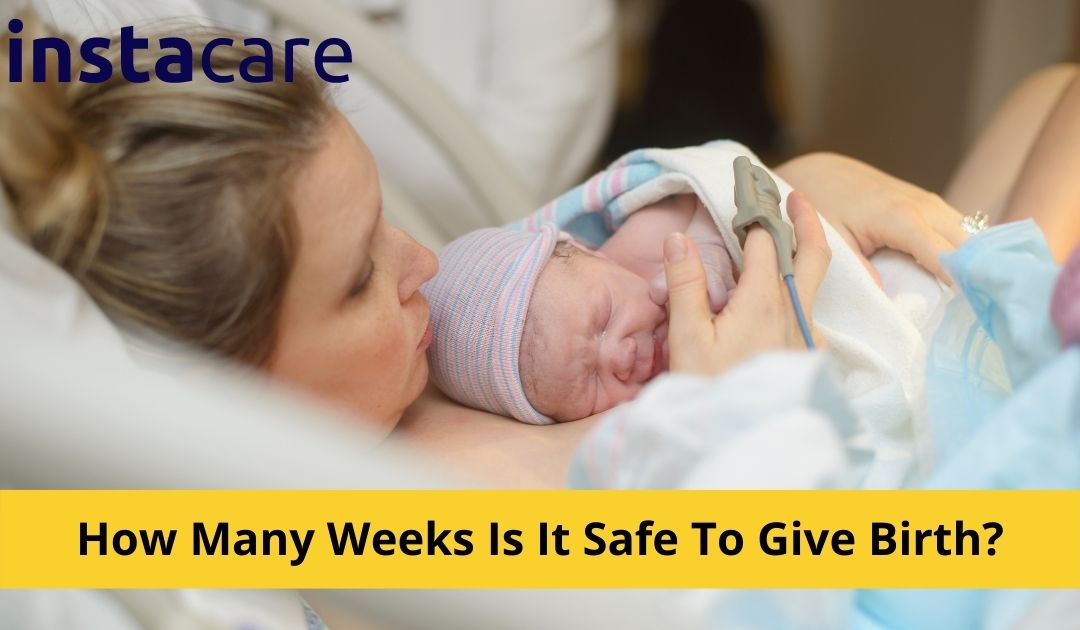The conclusion of the third trimester of pregnancy is usually filled with both joys and worry over the baby's impending arrival. It may also be both physically and emotionally taxing.
In your pregnancy, you could be dealing with swollen ankles, increasing pressure in your lower belly and pelvis, and looping thoughts like, "When will I go into labor?" Labor induction may feel like a wonderful gift from the universe when you reach 37 weeks. Still, researchers advocate waiting until your baby is fully developed unless you or your baby have serious health issues.
A full-term pregnancy lasts for 40 weeks. Although doctors used to define "term" from week 37 to week 42, those remaining few weeks are too important to be overlooked. Your body is making its final preparations for childbirth during this period, while your baby completes the development of critical organs (such as the brain and lungs) and achieves a healthy birth weight.
Uncomplicated pregnancies between 39 and 41 weeks have the lowest risk of newborn problems. It's critical to be patient to give your baby the best possible start. Premature labor inductions before week 39 might put the baby's health in danger in the short and long term. Deliveries that occur at week 41 or later might also be more complicated.
No two women are the same, and no two pregnancies are alike. Some infants will arrive early, while others will arrive late, with no serious difficulties.
What Is The Earliest Week That You Can Deliver Safely?
The higher the risk to your baby's health and survival, the sooner they are born.
Your kid is labeled "preterm" or "premature" if they are delivered before week 37. Your kid is deemed "very preterm" if they are delivered before week 28.
Between weeks 20 and 25, babies have an extremely slim probability of surviving without neurodevelopmental problems. Only 5 to 6% of babies born before week 23 have a chance of surviving. Preterm and extremely preterm babies now have access to medical advancements that aid in the continued development of organs until they reach the same level of health as a term baby.
If You're Expecting A Baby Who'll Be Born Prematurely
If you know, you'll have a very premature baby. You can collaborate with your healthcare provider to develop a plan for your care and that of your baby. It's critical to speak freely with your doctor or midwife about the potential dangers and problems. One of the most crucial reasons to carry your kid to full term is to guarantee that their lungs mature fully.
View More: How To Prevent Miscarriage?
However, due to several considerations, including the mother, baby, and placenta, the healthcare practitioner, doctor, or midwife will need to weigh the hazards of reaching full term against the benefits of complete lung development.
Placenta previa, a previous cesarean or myomectomy, preeclampsia, twins or triplets, persistent hypertension, diabetes, and HIV are some of these risk factors.
In some circumstances, delivery before 39 weeks is required. It's still possible to have a good, healthy birth experience whether you go into labor early or your healthcare professional advises labor induction.
Normal Delivery Time Duration
Normal birth normally starts two weeks before (or beyond) the expected delivery date. Labor lasts 12 to 18 hours on average during the first pregnancy; subsequent labors are typically shorter, lasting 6 to 8 hours.
How long does it take to get the kid out of the womb? Delivery takes 30 minutes to an hour, but it can take up to three hours, especially for first-time mothers (second and subsequent infants normally come out much faster), or as little as a few minutes.
Every woman has varied levels of pain during childbirth. It differs greatly from one woman to the next and even from one pregnancy to another. Labor pain can feel like period cramps for some women, intense pressure for others, and incredibly strong waves that feel like diarrheal cramps.
Things To Remember
Although the unborn baby spends around 38 weeks in the uterus, the typical length of pregnancy, or gestation, is 40 weeks. The first day of the woman's last menstruation determines pregnancy, not the day of conception, which is usually two weeks later. Because some women have trouble remembering the day of their last menstruation (due to irregular periods). A baby is considered full term if born between 37 and 42 weeks after its anticipated due date.
Please book an appointment with the best Gynecologist in Lahore, Karachi, Islamabad, and all major cities of Pakistan through InstaCare, or call our helpline at 03100002273 to find the verified doctor for your disease.












